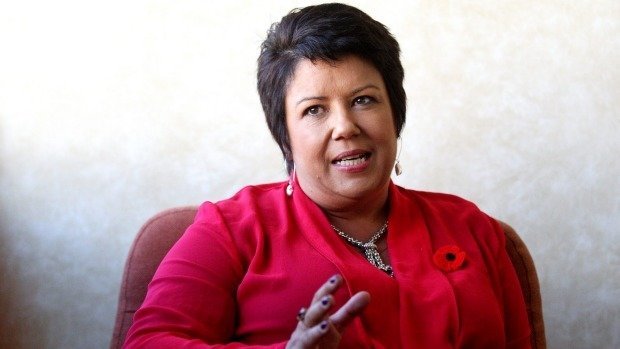Over the weekend Paula Bennett gave her first speech as climate change Minister. How did she rate? A couple of her statements were very promising, but much of it was a continuation of the ‘do nothing and make excuses’ approach pushed by her predecessor Tim Groser.
Leadership
Bennett’s predecessor Tim Groser was a diplomat – you couldn’t understand him at times but he was careful never to fib. He shyed away from terms like ‘leadership’ because he knew his Government weren’t interested in reducing emissions. Yet Paula Bennett has launched into this role saying she wants to see New Zealand “be a global leader in transitioning to a low-carbon economy”.
No one could argue that New Zealand has been a global leader in the last 7 years. Without doubt we have been an embarrassing laggard. Does she really mean it, we are going to change our spots? We hope so.
National MPs have long used the excuse that because New Zealand is a small emitter on the global scale, what we do doesn’t really matter. Bennett is now arguing that “it’s imperative we all play our part”. Hopefully that means we will actually aim to reduce our emissions in the future.
Talking up the carbon price
An important part of that leadership role (or at least playing our part) is having an Emissions Trading Scheme that provides an incentive to cut emissions. Sadly under Minister Groser the carbon price was managed downwards, to reduce costs to emitters and make it cheap to cut down forests and convert to dairy farms instead. This has proved to be a triple whammy – bad for our fresh water, our emissions and our economy.
In the recent ETS review the Government has signaled a long overdue end to the two for one deal on carbon credits that it introduced in 2009. That is a good start, but to kick-start the ETS and get some action to reduce emissions we urgently need a much stronger price on carbon. It needs to be above $15 at the very least to ensure that foresters have sufficient incentive to plant trees. Minister Bennett seems to know that:
“It’s clear that if the ETS is going to work, carbon has to cost more than it does right now.”
Tim Groser’s line in the past was to throw up his hands and say that he couldn’t control the ‘international’ carbon price. That was a joke, as countries all set their own rules and New Zealand was the only country allowing unlimited use of crap, fraudulent credits. The point is that it is a regulated market and Government policies have a huge impact on the carbon price. If Bennett has realised this already, she is doing well.
Agriculture still out of the ETS
Paula Bennett has made it clear that on her watch agriculture will remain out of the Emissions Trading Scheme (ETS). In her view, bringing agriculture into the ETS would “massively and suddenly increase costs on farmers and farming communities.”
Ms Bennett may be a great politician, but she would make a terrible economist. The fact is that we have agreed to targets to reduce our emissions by 2020, 2030 and 2050. The ETS is our main policy tool for achieving those emissions. If agriculture is not involved, it falls on the rest of the economy, particularly the taxpayer, to meet our obligations as a nation. This is on top of the taxpayer already footing the bill for the research into technical solutions to reduce agricultural emissions.
There are problems with bringing in agriculture. It is difficult to make farms accountable for their emissions. There are also questions about whether methane should be accounted for differently. These are all issues that should be looked at in preparation for agriculture entering the ETS. We can’t delay the inevitable forever.
What we do know is that there is no reason not to include nitrous oxide – another key agricultural gas – in the ETS. It is a long lived gas, which we have to reduce to zero as soon as possible. Despite what Paula Bennett says, there are ways for farmers to reduce their nitrous oxide emissions. Some experts argue that this could be done in a way that wouldn’t reduce profit, and would help farmers prepare for the future.
In fact, like other exporting industries, farmers could be given free credits so that they still have an incentive to reduce emissions but don’t face any crippling cost increases. In short, Ms Bennett is wrong on this one.
New Zealand’s Achievements and Challenges
Like agriculture, much of what Bennett’s lines are still straight out of the Groser playbook:
An impressive 80 per cent of our electricity comes from renewable sources like geothermal and hydro, and we’re on track to making that 90 per cent.
Really? Prove it. The most recent projections by MBIE say we are not on track.
So for those countries with massive energy and transport emissions like those in Europe, you see them setting these targets that look incredibly bold and ambitious on the surface, but in reality, are much easier to achieve.
We’ve covered off why this statement is wrong in a previous blog.
Because of our smaller population and as a long, thin and diversely spread country, large scale public transport infrastructure is just so much more expensive.
So why is your mate Nick Smith encouraging more sprawl Paula?
In summary Ms Bennett has a lot to learn about this space before her statements become credible. So far there are some noises of good intent, no acknowledgement of how terrible we’ve been (she is after all a politician so that would be too much to ask) and there is plenty to suggest she doesn’t really understand the challenge.

